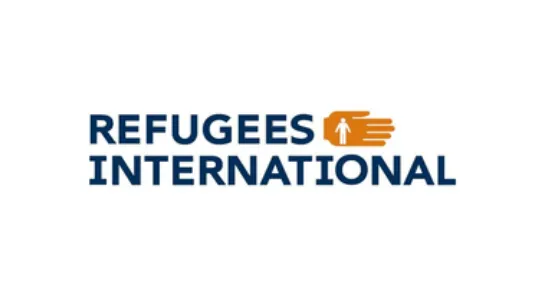A Closing Window: How Aid Cuts are Undermining Rohingya Possibilities
22 May 2025

Executive Summary
The Rohingya crisis has entered a critical juncture. Tentative progress is now at risk due to severe aid cuts that threaten rapidly deteriorating conditions in the camps. A new interim government in Bangladesh and evolving dynamics inside Myanmar have opened a fragile but important pathway toward improved conditions for Rohingya refugees in Bangladesh and the potential for voluntary return. However, this progress is already being undermined by declining international attention and sharp reductions in humanitarian assistance. Although a high-level conference on the Rohingya and other minorities in Myanmar is scheduled for September 2025, with Rohingya civil society participation being considered, the extent to which Rohingya voices will be included in these discussions remains unclear. For any progress to be sustainable, aid must be urgently restored and Rohingya refugees must be meaningfully engaged in shaping their future.
Since taking office in August 2024, Bangladesh’s interim government has shown greater openness toward addressing Rohingya needs, including previously off-limits issues such as durable shelters, education, and livelihoods. Meanwhile, in Myanmar’s Rakhine State, the Arakan Army (AA)—an ethnic armed group—has gained control over parts of the region, creating new opportunities for cross-border aid and renewed dialogue on voluntary repatriation. Yet these dynamics remain delicate. The interim government’s capacity is limited, and its political capital is already stretched. Within the camps, multiple and sometimes conflicting narratives are emerging. While some officials explore dialogue with the AA’s political wing, reports suggest that other actors are informally encouraging Rohingya armed groups to return and join the fight against the AA. At the same time, deep mistrust persists between the Rohingya and Rakhine communities, and many Rohingya civil society members and human rights defenders continue to feel excluded from key discussions about their future.
Engaging the AA is particularly complex given its role in atrocities against the Rohingya. Understandably, refugees are deeply reluctant to return without concrete guarantees of safety and accountability. Still, many within the community recognize that coexistence with the Rakhine people and engagement with the AA will be essential to any viable return process. Progress will require inclusive dialogue, confidence-building measures—such as the safe return of Rohingya IDPs, organized “go-and-see” visits for refugees, access for cross-border humanitarian aid, and international monitoring—as well as steps toward accountability. Cross-border possibilities are particularly urgent as many areas of Rakhine State already face stark increases in food insecurity.
There is a narrow window of opportunity to engage the interim Bangladeshi government on education, livelihoods, and the inclusion of Rohingya in future discussions with the AA, other Myanmar stakeholders, and at the upcoming global conference on the Rohingya. These conversations could help lay the groundwork for durable solutions.
But this window is closing fast. Recent aid cuts have already eroded gains in health, safety, and stability. Although the worst-case scenario—cuts to food rations by more than half—was narrowly averted, broader reductions in humanitarian funding are taking a visible toll and pushing refugees toward increasingly desperate coping mechanisms. Lives are at risk. Restoring and increasing aid must be an immediate global priority—not only to meet urgent humanitarian needs, but also to preserve the fragile openings that could allow the Rohingya to envision a future beyond displacement.
Announcements
21 May 2025
Open letter: Malaysia must lead ASEAN with principle, not hypocrisy, to address the Myanmar crisis

Progressive Voice is a participatory rights-based policy research and advocacy organization rooted in civil society, that maintains strong networks and relationships with grassroots organizations and community-based organizations throughout Myanmar. It acts as a bridge to the international community and international policymakers by amplifying voices from the ground, and advocating for a rights-based policy narrative.